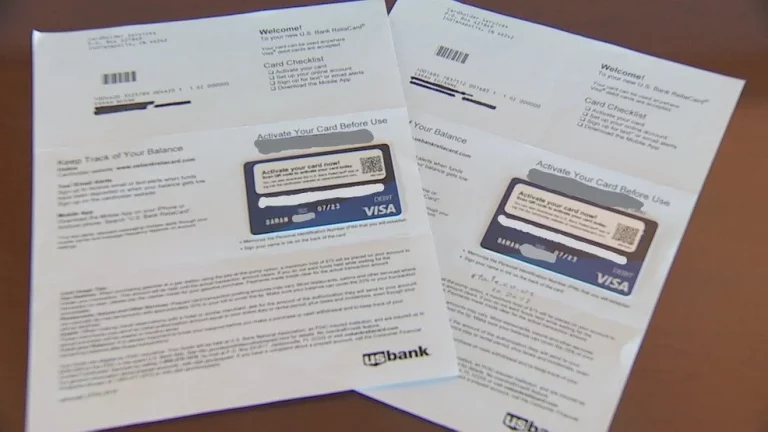Yes, you can block a company from charging your credit card. But there are a few things to keep in mind …
The first thing to remember is that most companies don’t charge your credit card automatically. They usually wait for you to give them permission to do so, by signing up for an automatic billing arrangement.
Once you’ve arranged with a merchant to pay your bill automatically, they’re entitled to take money from your account unless they’ve agreed to an end date or you’ve canceled the arrangement. However, many vendors let you change or cancel this arrangement at any time simply by calling customer service.
The second thing to remember is that some companies charge your credit card automatically as soon as you make a purchase with them — even if it’s only a one-time transaction and not part of an automatic billing arrangement.
This isn’t something they’re entitled to do under the law, but it happens anyway, often without any warning that it’s going to occur. It’s frustrating and annoying, but the Fair Credit Billing Act (FCBA) allows merchants to take money from your account whenever they want if you authorize them to do so and if your account has
Can You Block A Company From Charging Your Credit Card?
Yes, you can. To cancel recurring payments on your credit card, simply contact your card issuer and inform them that you are not interested in the service provided by the specific company.
This will inform them that you do not wish for the merchant to profit from your card. If your financial institution is helpful, they will go above and above to help you with the situation.
Essentially, you may become dissatisfied with certain services and opt to terminate your contact with them. During circumstances like these, you might wonder if you can prevent a company from charging your credit card.
What should you do if a company continues to charge you?
One of the first things you need to do is send a letter or email to your lender’s billing inquiries address to cancel your automatic payments. It should be done via certified mail within 60 days after the last recurring charge is received from your account.
Within 30 days of receiving your complaint, your lender must recognize it and remedy the issue within 90 days. To file a complaint against the merchant, contact your local Better Business Bureau and your state’s attorney general.
Stopping reoccurring payments on your credit card
When you set up a recurring payment, the corporation or merchant can take your money without alerting you. If you have a Spotify membership, the cost will be debited from your card every month.
This may have made your life easier because you will no longer have to make this payment at the beginning of each month. That’s great until you’re ready to part ways with the merchant.
Keynote
You may want to stop these recurring payments if you no longer want to use or are interested in the services provided by a company or merchant. If you’re wondering, “Can I prevent a company from charging my credit card?” Yes, it is correct.
You have two options for preventing a company from billing your credit card: call the merchant or contact your bank. The best method is to contact your merchant, particularly if you wish to cancel a service with him that is still active.
When you use a service, you agree to a contract with the merchant, and if you wish to cancel the service or discontinue your relationship with the company, you will almost certainly be met with opposition. If you want to cancel the relationship before the contract expires, the merchant may warn you that you won’t be able to do so until the contract has expired.
Why Should You Stop Making Recurring Payments?
Vendors can avoid CVV, card numbers, and expiration dates by setting up recurring payments with a card. As a result, they can profit from your account even if the card details have been changed.
Some shady merchants may be able to collect your money even after you have discontinued their services as a result of this. In such a case, you must be aware of the options available to you to avoid a crisis. You can proceed with a clear mind after reading the article.
How to Block Recurrent Credit Card Transactions
Using regular credit card payments to pay for things like club memberships and subscriptions can be a pain.
Vendors can use recurring card payments to get around expiration dates, CVV numbers, and card numbers, allowing them to deduct money from your account even if you’ve changed your card information.
Unscrupulous merchants may use this system to continue taking your money after you’ve tried to cancel their services.
- Please contact your bank or the card issuer.
In a situation where the company persists in deducting money from your card against your requests, contact your card issuer and request that the company be blocked from charging your credit card.
As the card owner, you may be required to show documentation that you are not bound by a contract and that you have asked the merchant to stop charging your credit card.
When you’ve already asked for a recurring payment to be halted, every time the offending merchant deducts money from your account, it’s considered an illegitimate transaction.
- Contact the company or vendor
Send a letter to the firm that is billing your card, requesting that your service or subscription be canceled. Request a written response. Once the notice of termination time has ended, send a certified letter or email declaring that you do not want any more money withdrawn from your credit card account.
If you are forced to give notice, you may be compelled to make an additional payment. Any letters you submit and any responses you get should be copied. To guarantee that your request is properly processed, the Federal Trade Commission recommends sending a letter via postal mail to the company’s “billing inquiries” address.
- Examine the terms and conditions of your Transaction.
Examine the service agreement you signed with the vendor that’s billing recurring fees to your credit card account, according to U.S. News & World Report. When you signed up for a minimum contract, you won’t have much choice except to keep paying even if it hasn’t expired.
Stopping payments while you’re in the middle of a contract might have a negative influence on your credit score and may result in legal action. Although you are no longer under contract, you may be required to give notice before your service can be terminated.
When an unlawful charge is discovered, the cardholder should call the merchant immediately to dispute the transaction. Because a company’s success depends on repeat customers, most would try to settle the matter quickly.
Wrapping up
The company or vendor in question could face a fine from its bank if the charge was made without consent. In any case, if the initial inquiry is unsuccessful, the consumer can take the disputed transaction to the issuing bank’s or credit card issuer’s customer support department.
While the bank investigates, interest and penalties will be suspended. Normally, it takes two billing cycles for banks to finish this investigation, after which they notify cardholders of the findings.
Is it possible to prevent a corporation from charging your credit card?
When a company continues to deduct money from your account despite your requests, contact your card issuer and request that the company be blocked from charging your credit card.
Is it possible to put a merchant on my debit card’s blacklist?
You can block debit card transactions by contacting your bank if you fear your debit card will be used illegally or if you are unable to stop an automatic payment you have planned with a merchant. This can usually be done online, over the phone, or in person at a bank location.
Is it possible for a business to use your credit card without your permission?
According to experts, a firm cannot charge a credit card without the cardholder’s approval in most cases. Nevertheless, consent is not always evident in some scenarios, such as automatic payments or recurrent charges.
What if I put a hold on my credit card, Can it still be charged
A credit card that has been blocked cannot be reactivated with the same plastic. When a card is reissued, a new card is sent to your registered mailing address with a different number. Please note, however, that banning your card does not mean your credit card account will be closed.
Is it possible to put a hold on a debit card transaction?
You may generally stop payment on transactions with both credit and debit cards by challenging the charges. Call the credit card or debit card’s customer support number. The customer service phone number is usually displayed on the back of the card.
Is it possible to have a payment blocked by my bank?
Make a phone call or send a letter to your bank or credit union. You can stop an automatic payment from being made to your account by giving your bank a “stop payment order,” even if you haven’t canceled your authorization with the company. This advises your bank to block the company from withdrawing funds from your account.
Conclusion
This brings us to the end of our discussion on this topic. You’re entitled to a refund if the card company proceeds with a payment despite your request. You should be able to protect your money with the advice in this article.
If your bank or credit card, the issuer does not refund your money for a payment they shouldn’t have permitted, write to the company’s complaints department and get your money back. You can file a complaint with the Financial Ombudsman Service if you’re still not pleased.
- Does Wendy’s Take Google Pay? - July 1, 2025
- A Practical Guide to Post-Holiday Budgeting - July 1, 2025
- Does SHEIN Take Apple Pay - July 1, 2025




